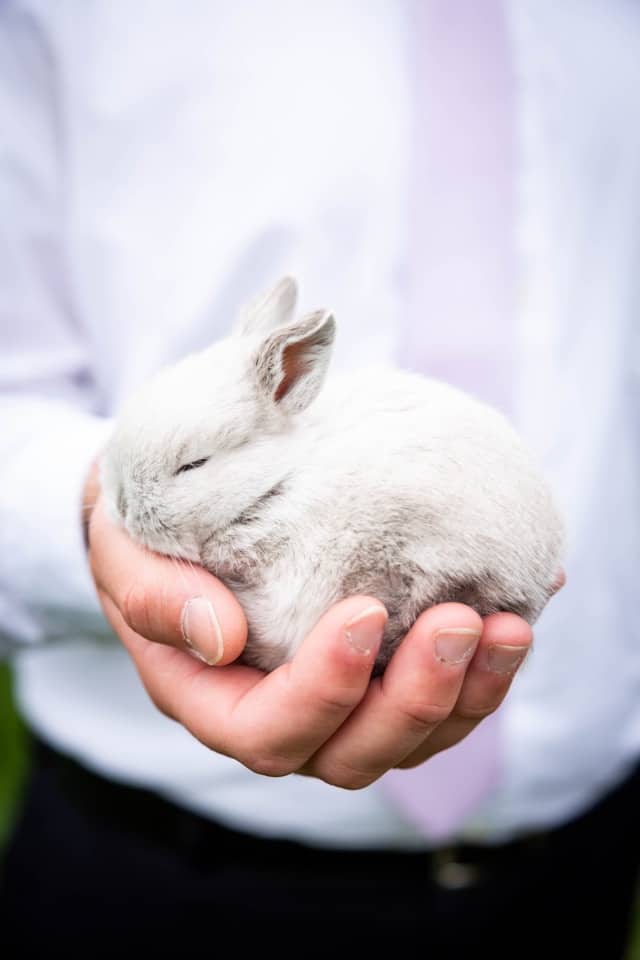Basic care for a domestic rabbit

Rabbits are an increasingly popular choice for a household pet. They are cute, furry, and generally low-maintenance. However, like any other pet, they require a certain level of care and attention to live a healthy and happy life. If you’re considering bringing a rabbit into your home or if you already have one, it’s important to understand their basic care needs.
Understanding Rabbit’s Basic Needs
Before bringing a rabbit into your home, you should have a basic understanding of their needs. This includes knowing what they eat, the type of environment they need, and how they interact with humans and other animals.
A lire en complément : Creating a safe garden for your pet
Rabbits are herbivores, which means they eat a diet that consists mostly of plant material. They love hay, vegetables, and a small amount of fruits. It’s important to stick to this diet to ensure they get the proper nutrients they need.
The environment your rabbit lives in can greatly affect their health and happiness. They need a spacious cage or pen where they can move around freely. They also enjoy having toys and other objects to play with and chew on.
En parallèle : Exercises to keep your dog fit
Lastly, rabbits are social animals. They enjoy company, whether it’s from other rabbits or humans. Regular interaction is key to their mental well-being.
The Importance of a Balanced Diet
Rabbits require a well-balanced diet to stay healthy. A balanced rabbit diet consists of hay, fresh vegetables, water, and a limited amount of rabbit pellets.
Hay should make up the majority of your rabbit’s diet because it is essential in maintaining good digestive health. It also helps to wear down their teeth, preventing overgrown teeth.
Vegetables are an important part of a rabbit’s diet. However, not all vegetables are safe for rabbits, so it’s important to do your research before feeding them any new food. Generally, leafy green vegetables like romaine lettuce, bok choy, and spinach are safe options.
Rabbit pellets are also part of a balanced diet, but they should be given in moderation. A small handful once a day is usually enough.
Remember to provide your rabbit with fresh water every day. Dehydration can lead to serious health problems.
Providing a Suitable Living Environment
Rabbits require a safe and comfortable living environment. This means providing ample space for them to move around, opportunities for play, and a place to hide when they feel scared or nervous.
Your rabbit’s cage or pen should be at least four times the size of your rabbit, allowing them ample space to hop and stretch. It should also be clean, well-ventilated, and free from potential hazards like electrical wires.
Toys are important for mental stimulation. Bored rabbits can become destructive, so providing a variety of toys can help prevent this. Choose toys that are safe for rabbits, like chew toys made from natural materials.
Rabbits also need a place to hide when they feel threatened. Providing a small box or tunnel can give them a sense of security.
Regular Veterinary Care
Just like any other pet, rabbits need regular veterinary care to stay healthy. This includes regular check-ups, vaccinations, and dealing with any health concerns as they arise.
Find a vet who is experienced with rabbits. Regular check-ups can help detect any potential health issues early. Preventative care, such as vaccinations and parasite control, is also important to keep your rabbit healthy.
If your rabbit shows signs of illness, such as loss of appetite, lethargy, changes in behavior, or signs of discomfort, seek veterinary attention immediately.
Proper Handling and Socialization
Rabbits are naturally social animals and require interaction to stay happy and healthy. However, they can be fragile and need to be handled with care.
When picking up your rabbit, always support their hind legs to prevent spinal injuries. Never pick up a rabbit by the ears or scruff.
Socialize your rabbit by spending time with them each day. This can be through play, grooming, or simply sitting with them.
Exercise and Mental Stimulation
Rabbits are energetic animals and require regular exercise to stay healthy. They also require mental stimulation to keep their minds active.
Provide your rabbit with a safe space to run and explore. This could be a securely fenced yard or a room in your home. Be sure to supervise your rabbit during exercise time to keep them safe.
Toys, puzzles, and interaction with you can provide mental stimulation. Play with your rabbit regularly, and rotate their toys to keep things interesting.
In summary, caring for a domestic rabbit requires understanding their basic needs, providing a balanced diet and suitable living environment, ensuring regular veterinary care, proper handling and socialization, and regular exercise. With the proper care and attention, your rabbit can live a long, happy, and healthy life.
Identifying Health Problems in Rabbits
Rabbits are skilled at hiding their illnesses, a survival instinct from their wild ancestors. As a rabbit owner, it’s crucial to be vigilant about any changes in their behavior or appearance that could signal poor health.
One of the most indicative signs of ill-health in rabbits is a change in their eating or drinking habits. If your rabbit stops eating or drinking, or changes the amount they consume, it may be sign of a health problem.
Changes in droppings, such as their size, consistency, or frequency can indicate digestive problems. If your rabbit’s droppings are smaller, harder, or less frequent, it may be a sign of a serious condition called gastrointestinal stasis.
Physical changes can also signal health issues. Weight loss, a dull coat, discharge from the eyes or nose, or a hunched posture can all be indicative of illness. A rabbit who is less active or hides more than usual could also be unwell.
If you notice any of these signs, it’s important to seek veterinary attention immediately. Timely treatment can make all the difference in your rabbit’s recovery and well-being.
Conclusion: The Rewards of Rabbit Ownership
While the care of a rabbit requires dedication and attention to detail, the rewards of rabbit ownership are plentiful. These little creatures offer companionship, amusement, and even an opportunity to learn about nature and responsibility.
Caring for a rabbit teaches us about the value of routine, as they thrive on a consistent schedule. Providing their basic needs such as a balanced diet, suitable habitat, regular veterinary care, and socialization opportunities underscores the importance of daily care for all living beings.
Rabbits are also wonderfully responsive pets. They can learn their names, respond to commands, and even use a litter box. Their playful antics, such as binkying (a happy rabbit behavior involving high jumps and twists in the air), will no doubt bring joy to your days.
Above all, the bond that develops between you and your rabbit makes all your efforts worthwhile. These sensitive, intelligent animals can form deep connections with their human caregivers. Their quiet companionship and unique personalities can enrich your life in unexpected ways.
In conclusion, while rabbits require a high level of care, they bring immense joy and companionship to our lives. When their needs are met, they can thrive and provide years of happiness and love. A well-cared-for rabbit is a happy rabbit, and a happy rabbit makes for a wonderfully rewarding pet.
